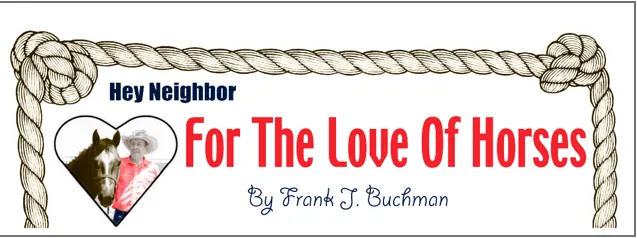By Frank J. Buchman
Crossbred milk cows contently graze green pastures at Nichols Family Dairy.
It’s sharp contrast to the nation’s corporation-dominated dairy industry with confined Holsteins fed high concentrate rations.
“A small dairyman needs some advantage today,” contends Carl Nichols at Westphalia.
“Rotational grazing is the smart way for our dairy to remain a profitable family business,” Nichols continues.
“There’s hybrid vigor from crossbreeding these dairy cows, too,” he adds.
Perhaps, most importantly, Nichols is emphatic about his operation: “I enjoy it.”
“Our cows have strong production records, live longer, and we have very little lameness, mastitis and infertility,” states the Anderson County dairyman.
“It’s been a family effort, and we’ve had challenges to be where we are today,” Nichols admits.
Foremost, Nichols credits his first wife and their seven children for dedicated hard work. “Everybody had their chores, and Dawanna was the guiding hand. She took a special pride in raising baby calves,” Nichols praises.
The children are grown, and Dawanna passed away suddenly and unexpectedly. “Two of our children and our grandchildren are still a part of the dairy, and I’m remarried,” Nichols notes. “Lu Ann works at Valley R Agri-Services, and does our bookwork.”
Love for his family, his cows, the land and hard work concisely describe Carl Nichols, perhaps with a notable sense of jovial orneriness, too.
Growing up in the locale, Nichols was a crop producer in the ’70s, when life transitioned, and he moved the family to the Ozarks. “We were in a purebred swine seed stock operation for several years until the bottom dropped out,” he reflects.
Baby calves being raised by Dawanna were turned into family milk cows. “We had a grade-C dairy with a 150-gallon bulk tank, and the herd continued to grow,” Nichols says.
Faced with health issues, Nichols moved his family back to Kansas, near Humboldt. “Then, we had an opportunity to buy this 70-acres farm with a double-eight Herrington milk parlor, and the option for a quarter section across the road,” Nichols relates.
In the home county, the family developed a grade-A dairy milking 100 cows basically in dry lots on high protein grain and roughage.
“Dawanna insisted that she’d had enough of that, and I agreed, too. So, we studied the New Zealand ways, and went to grazing the cows a lot,” Nichols remembers.
Never looking back, there have been ample changes made. Purchasing the adjoining 160 acres, the dairy’s rotational grazing has been field day feature and nationwide acclaim for study.
From those baby calves Dawanna got from dairies in Wisconsin and Minnesota, the foundation herd began. “We had some Guernseys, a few Holsteins, bred them artificially to Holsteins. I really didn’t like the Guernseys, so we bred to Jerseys,” Nichols reflects.
“There was one heifer who was half Jersey, quarter Guernsey and quarter Holstein. She wasn’t very big, the kids made fun of her, even named her Beauty,” Dad smiles.
“But, Beauty had hybrid vigor, and was really the foundation for our herd today,” Nichols appreciates.
“Crossbreeding makes a better cow,” he insists.
As the dairy grew to 200 producing cows, Nichols found demand to sell replacements to other dairymen. “A three-quarter Holstein, quarter Jersey is best, at least to sell. They look like Holsteins, but yet have that Jersey crossbred advantage,” he claims.
Cows are placed in production before being offered for sale with 40 percent of the herd annually sold to other operations. “Of course, we still keep the top producers in our herd,” Nichols explains.
Despite different feeding, handling and crossbred cows, the Nichols Dairy has a 13,000-pound milk record, with 4.3 percent butterfat, and 3.5 percent protein.
“Currently, we are using the best Milking Shorthorn and Swedish Red sires available artificially for dairy replacements,” Nichols relates, “with Limousin bulls from Gene Raymond for cleanup.
“There is a strong market for these bull and heifer calves,” he declares.
Out of the milk barn each morning, cows stroll onto lush pasture. “We plant a variety of annual grasses, and also have fescue and alfalfa for grazing,” Nichols says.
Acres are seeded to sudan grass, wheat, triticale and crabgrass, which “throws more seed for regrowth,” along with turnips and radishes as fall crops. “I may try rye grass, too,” Nichols notes.
Electric fencing is used for strip grazing. Cows are rotated onto fresh paddocks twice daily.
Nichols Dairy’s grassland is separated by high-traffic blacktop between Wolf Creek Nuclear Plant and Garnett. “I received permission from the county commissioners to construct a six-foot tall bridge to move the cows under the blacktop,” Nichols recounts.
Of course, the cows have to have some supplement feed. “I buy alfalfa and silage. It’s cheaper to buy than for me to raise it,” he says.
Wet distillers grain available from the nearby ethanol plant works well with hominy in the total mix ration. ”Hominy is 10 percent protein, higher in fat and very digestible,” Nichols verifies.
Valley R Agri-Services is credited for detailed nutrition management.
Nichols’ daughter and son-in-law, Mary and Greg Kropf, have their own grazing dairy operation nearby called Sunrise Dairy, which is operated in a similar way.
Son Jesse and wife Carolyn and their sons Chesney, Kastille, and Destin are part of Nichols Family Dairy daily operations. There are also part time employees.
In addition to milking cows, Nichols keeps some calves on nurse cows, and has a flock of 250 ewes.
A busy life, it’s still a simpler, healthier, happier, more natural way at Nichols Family Dairy.



